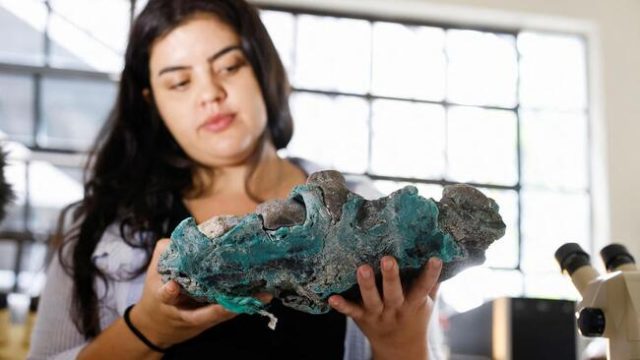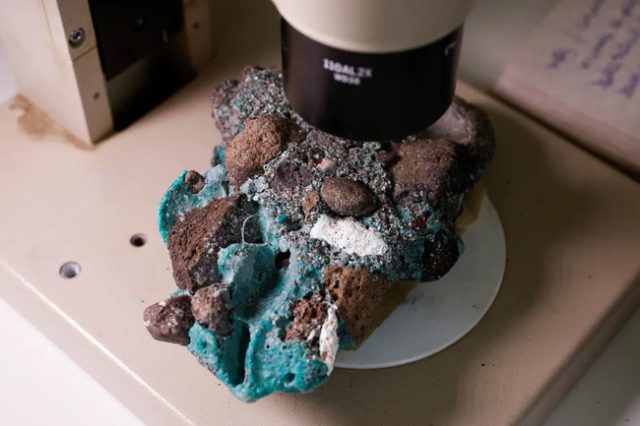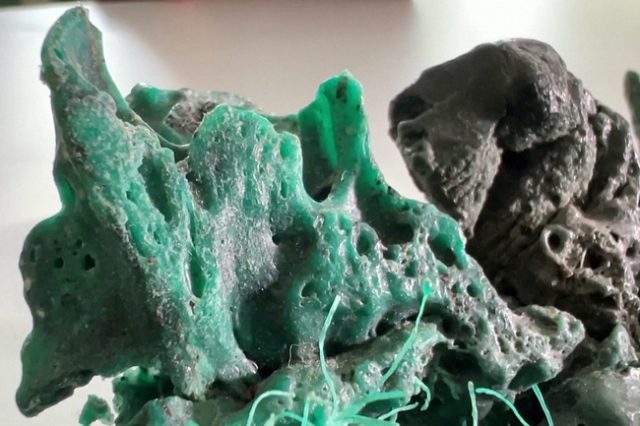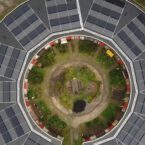
The recent discovery of “plastiglomerates” on Trindade Island, a remote volcanic island off the Brazilian coast, has sent shockwaves through the scientific community due to its alarming environmental implications. Initially, scientists were perplexed by the presence of these unusual bluish-green rocks scattered across the island. Recognizing the urgency of understanding their composition and origin, geologists from the Federal University of Parana conducted rigorous chemical tests to unravel the mystery surrounding these plastic rocks.

The term “plastiglomerates” aptly captures the essence of these hybrid formations, highlighting the amalgamation of natural volcanic materials with synthetic plastics. This unprecedented discovery underscores the pervasive impact of human-made materials on even the most isolated and seemingly pristine environments. The existence of “plastiglomerates” on Trindade Island serves as a stark reminder of the far-reaching consequences of plastic pollution, as these materials find their way into the most remote corners of the planet, disrupting ecosystems and leaving a permanent mark on the Earth’s geology.

From an environmental standpoint, the identification of “plastiglomerates” on Trindade Island raises concerns about the long-term consequences of plastic pollution and its potential to alter geological formations. The fact that synthetic materials have integrated with natural volcanic rocks highlights the lasting imprint of human activity on the planet. This discovery serves as a call to action, emphasizing the need for global efforts to mitigate plastic pollution and protect the Earth’s ecosystems from the far-reaching impact of human-made materials.


















